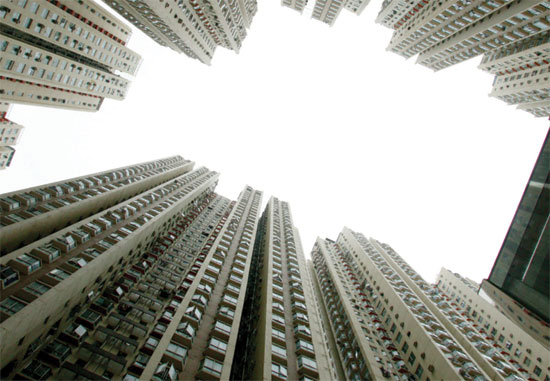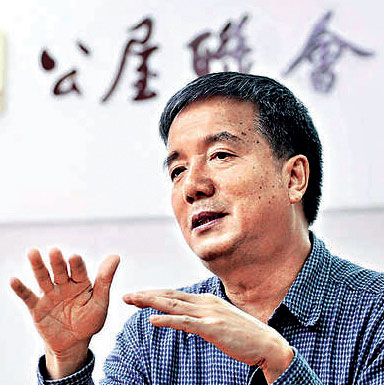The housing blues in Hong Kong
Updated: 2012-11-14 14:51
By Joseph Li from Hong Kong (China Daily)
|
||||||||
Hong Kong faces a critical housing shortage, exacerbated by rising property prices out of reach of most citizens, and rents following suit. The government is devising a long term housing strategy, or LTHS, aimed at ensuring optimal use of existing land and housing resources, in the hope of solving this problem in the near, medium and long term.
|
 Hong Kong is devising a long term housing strategy, aimed at ensuring optimal use of existing land and housing resources, in the hope of solving this problem in the near, medium and long term. |
After collecting the relevant data, it will project demand for both public and private housing to meet the needs of various groups. Joseph Li has spoken to people familiar with housing issues, including the LTHS Steering Committee members Eddie Hui, PC Lau and Wong Kwun to share their insights.
Wong Kwun
Chairman, The Federation of HK, Kln, and NT Public Housing Estates & Shopowner Organization.
|
 |
Housing has been one of the most serious quality of life problems in Hong Kong for decades and sometimes it's a political problem.
The root cause is very simple: inadequate housing supply of both public and private housing units, while the insufficient supply of private housing has prompted property prices to surge.
At present, there are a record high of nearly 200,000 households applying for public rental housing. The situation reflects the economic downturn and escalating property prices beyond the affordability of many citizens. Besides, decreased construction of public rental units and the relaxation of income/asset limits have also prompted the increase of applicants for public housing.
When Donald Tsang was still chief secretary in 2002, he suspended construction of flats under the Home Ownership Scheme (HOS) until he announced in 2011, as Chief Executive, the resumption of the scheme. So supply of subsidized housing was stopped for many years.
Again, the sites originally designed for HOS flats were not returned to the Housing Authority for building rental units. After some old public housing estates were demolished, the sites were sold to the property developers to build luxury flats.
I think the government of that era was indulging in wishful thinking that the developers would build more low-priced, small and medium-sized flats. In my view, suspension of the HOS flats was a means to "prop up the property market", so was the decision to allow developers to apply for sites from the land reserve list, in lieu of regular land auctions.
In fact, some developers have plenty of sites in their land banks. They do not build enough flats because they know very well that if housing supply is plentiful, they cannot sell the flats at higher prices.
All in all, Donald Tsang did very little to increase land supply and accordingly, housing supply during his tenure as CE.
I hope the steering committee will estimate the housing demand and devise strategies for the next 10 to 15 years, at the same time announce the number of both public and private housing units to be built, to cope with demand. Also, the terms of reference of the steering committee must include land supply so that it will know if it has enough sites to achieve the construction target.

 Relief reaches isolated village
Relief reaches isolated village
 Rainfall poses new threats to quake-hit region
Rainfall poses new threats to quake-hit region
 Funerals begin for Boston bombing victims
Funerals begin for Boston bombing victims
 Quake takeaway from China's Air Force
Quake takeaway from China's Air Force
 Obama celebrates young inventors at science fair
Obama celebrates young inventors at science fair
 Earth Day marked around the world
Earth Day marked around the world
 Volunteer team helping students find sense of normalcy
Volunteer team helping students find sense of normalcy
 Ethnic groups quick to join rescue efforts
Ethnic groups quick to join rescue efforts
Most Viewed
Editor's Picks

|

|

|

|

|

|
Today's Top News
Health new priority for quake zone
Xi meets US top military officer
Japan's boats driven out of Diaoyu
China mulls online shopping legislation
Bird flu death toll rises to 22
Putin appoints new ambassador to China
Japanese ships blocked from Diaoyu Islands
Inspired by Guan, more Chinese pick up golf
US Weekly

|

|






